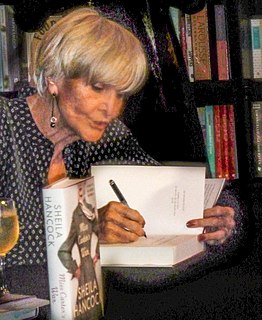A Quote by Mary Oliver
Look for verbs of muscle, adjectives of exactitude.
Quote Topics
Related Quotes
What is an adjective? Nouns name the world. Verbs activate the names. Adjectives come from somewhere else. The word adjective (epitheton in Greek) is itself an adjective meaning 'placed on top', 'added', 'appended', 'foreign'. Adjectives seem fairly innocent additions, but look again. These small imported mechanisms are in charge of attaching everything in the world to its place in particularity. They are the latches of being.
I love that moment in writing when language falls short. There is something more there. A larger body. Even by the failure of words I begin to detect its dimensions. As I work the prose, shift the verbs, look for new adjectives, a different rhythm, syntax, something new begins to come to the surface.
If you go through any newspaper or magazine and look for active, kicking verbs in the sentences, you will realize that this lack of well used verbs is the main trouble with modern English writing. Almost all nonfiction nowadays is written in a sort of pale, colorless sauce of passives and infinitives, motionless and flat as paper.
For values or guiding principles to be truly effective they have to be verbs. It's not "integrity," it's "always do the right thing." It's not "innovation," it's "look at the problem from a different angle." Articulating our values as verbs gives us a clear idea - we have a clear idea of how to act in any situation.
I was doing a terrible thing in using the very books you clung to, to rebut you on every hand, on every point! What traitors books can be! You think they're backing you up, and then they turn on you. Others can use them, too, and there you are, lost in the middle of the moor, in a great welter of nouns and verbs and adjectives.







































